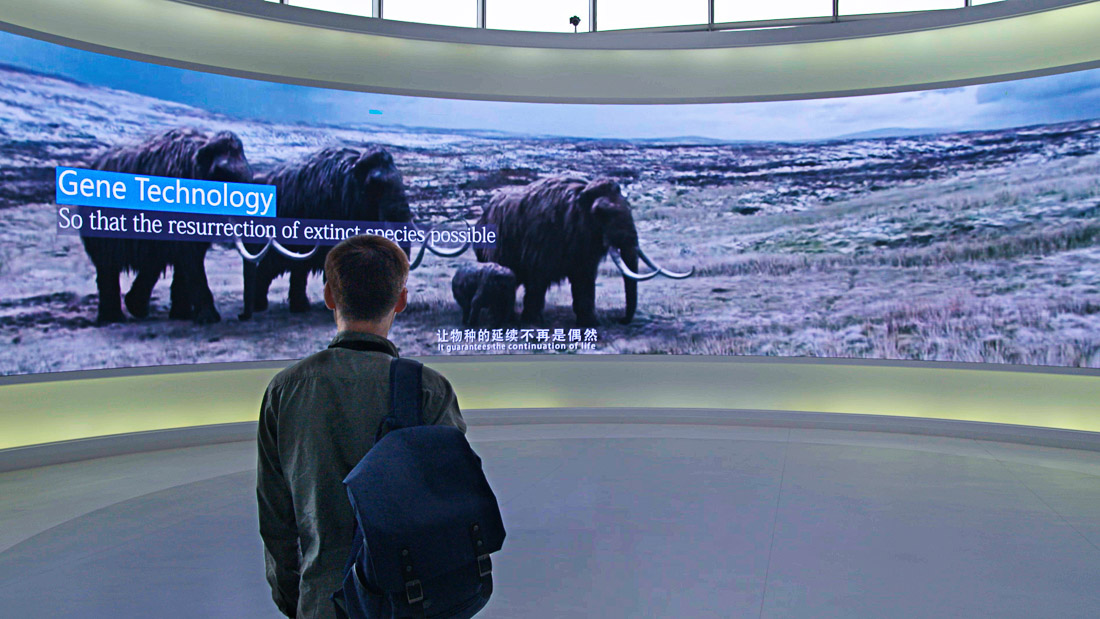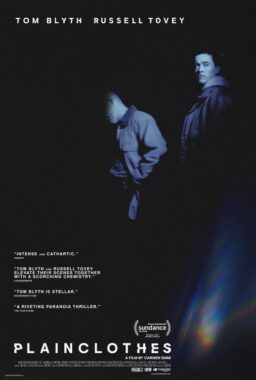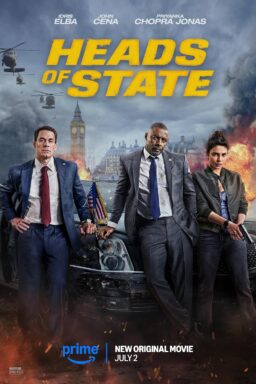We have not yet reached the dawn of recreating dinosaurs as in ”Jurassic Park,” but “Genesis 2.0″ makes that achievement seem closer than ever compared to any recent narrative or documentary film (even “Jurassic World“). This is a documentary that concerns new life and old remnants, framing itself in two ways: as the scientific journey in genome code into cloning, as juxtaposed with tusk hunters in Siberia seeking pieces of wooly mammoth, buried in the cold ground but worth a good price if enough is in tact. The goal is to clone a wooly mammoth, and to understand its genome code just as scientists have done with so many other organisms.
The directors experience both parts of this cycle, and in a storytelling device that doesn’t entirely work, write dispatches to each other as expressed in voiceover. Still, the images they capture are vivid, whether it’s of endless youth at a science convention sharing their billion-dollar ideas for energy and new life, or the tusk hunters working through unforgiving, empty terrain in search of a great tusk.
With so much time spent on the life of the tusk hunters, the economic angle does not work to the extent they may hope. Yes there is a powerful contrast in how one brother is doing something futuristic while the other is a Neanderthal, but as they cut back and forth between two different conditions, it can only hammer in the air of economic disparity that clearly irks the filmmakers so much.
Though it is a slow burn, the doc is rewarding for the incredible, historic events captured within. A discovery of a whole wooly mammoth is just the beginning; footage that comes later of these genome farms, and a normalization of the cloning process is truly incredible, if not eerie. To bring things back to “Jurassic Park,” one of the scientists even talks about “perfecting God,” as if he were quoting Spielberg’s film. But “Genesis 2.0” prevails by providing a profound sense of time’s expanse: It gives you an idea of how many lifetimes would have had to pass since a wooly mammoth last walked the Earth, while showing a vision of work that will soon no longer be considered science-fiction.

“The Cleaners” displays a fantastic ability to wrap its head around a complete mess: the dehumanizing act of physically censoring social media, but more importantly the employment of human beings to decide what horrors we do and don’t see. Directors Hans Block and Moritz Riesewieck keenly focus on something that affects everyone with a social media account, a crisis with repercussions as unconscionable as they are important.
The documentary starts by looking at the forgotten people who give the film its title. Anonymous and with shadowy faces, men and women from Manila toil over thousands of images or videos in a day, given the directive of whether to “Ignore” or “Delete.” They are being contracted by a third-party company, ultimately working for places like Facebook, examining the type of content (violent, sexual, offensive) that a single person in your feed might flag so that no one else sees it. This brings up endless issues of whether an image has artistic right (a painting of Trump and his small penis) or political right (footage of bombings, meant to be used for journalism and activism) to be on social media. There are so many complications—like that the people of the Philippines might have a different idea than the Americans might have a different idea of what is considered illegal, or the evolving definition of what’s considered “offensive”—along with the dehumanizing aspect of such a job, being subjected to the world’s worst images, stretching the human psyche in the way the soul was not built for. Under very strict leadership, they are only allowed to make few mistakes each month, and they must go through a heavy amount of social media everyday. In various passages in this film, they walk us through their process of analyzing images of beheadings, child pornography, suicide and more.
Block and Riesewieck articulate the issue’s global importance by speaking to a wide variety of first-world people who are involved with censorship, whether its tech people in California who offer succinct diagnoses of these issues, or different people from around the internet who have had their ideas compromised by censorship. “The Cleaners” boasts a necessary scope and immediacy for such a crisis of humanity, the questions it raises becoming a disturbing facet themselves.
But most poignantly, “The Cleaners” always goes back to the dark, quiet offices of the content moderators, as captured in stunning, subdued cinematography. As the patient zeroes for all that is harmful and evil on the internet, these people sacrifice their souls for a purpose that was already questionable, and throughout the doc becomes all the more inhumane. With no solutions but an endless amount of content to debate, “The Cleaners” prevails most by shining a light on those whose existence has all but been erased by a flawed system, all so that everyone else can still be heard on social media.












